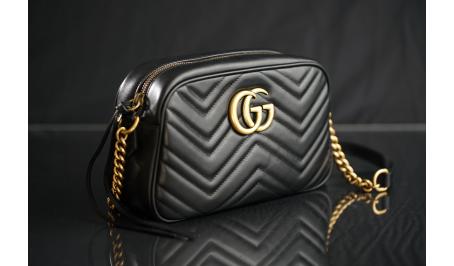- Membership
- The NY Chapter
- Our Career Services
- Committees
- National FACC Network
Meet the Member: Milton Springut, Partner Springut Law
Member news | November 22, 2019

Milton is the founding partner of Springut Law where he specializes in intellectual property litigation and counseling. Milton litigates and prosecutes patents in the scientific disciplines, including electrical and electronic systems, computer hardware and software, and business systems, drawing on his experience at Bell Telephone Laboratories, where he developed computer hardware and software systems. Milton also is one of the country’s few experts in fashion and luxury goods IP.
Over 25 years of practice, Milton has earned a reputation as one of the country’s most skilled litigators of trademark, counterfeiting, and gray goods cases, representing the world’s top luxury brands and international fashion houses. He has served as the full-service outside advisor to Richemont (Cartier, Montblanc, Van Cleef & Arpels, Chloe), Gucci, Guess?, and others, in their patent, design patent, copyright, trademark, and trade dress strategies, and in defending their premium IP rights through litigation. In doing so, Milton successfully implemented procedures to combat the proliferation of counterfeit and gray goods, directing both investigations and legal proceedings.
Milton’s fashion-related litigation accomplishments include:
-
Chloe v. Queen Bee, in which the Second Circuit made a ground-breaking decision on internet personal jurisdiction, allowing trademark owners to bring suit in a more convenient location, and not only where a counterfeiter resides;
-
Gucci America v. Hall & Associates, which established that Internet Service Providers are not immune from secondary liability for trademark infringement for infringing content posted on internet websites
FACC: Springut Law is a leading IP boutique firm. The firm’s attorneys have represented leading fashion, life-science, technology and media companies. Your website highlights a recent case with opinion-fact dichotomy in false advertising cases. Especially in today’s climate, in certain cases, opinion and fact are intermingled to create an indiscernible narrative. How do you separate fact from fiction?
MS: There are really two questions here. One is how to differentiate factual claims from opinions. Second is how to tell if something is true or false.
The first is a difficult question that cuts across several areas of the law, not only false advertising, but also defamation. The key, generally, is whether the claim can be shown, in theory, to be false. Facts can be proven true or false. Opinions cannot.
As to whether something is true, that requires a review of the supporting factual evidence. Which, of course, varies enormously, based on what the advertising claim is.
FACC: Recently, an MTV VMA performer and ultra of-the-moment singer was embroiled in a controversy over her song lyrics, which were “inspired” by a meme, leading to questions about trademark and attribution. As an IP lawyer, how do you define the fine line between inspiration and infringement?
MS: The key considerations are (a) first, what rights does someone else have that are being asserted and (b) is your use sufficiently close to constitute an infringement of those rights. And all forms of rights must be considered – trademarks, copyrights, design patents, etc.
FACC: As an attorney, have you always focused on this specialty? What are you most passionate about?
MS: (1) Yes. (2) Pushing the envelope on the law that protects creativity and client’s rights.
FACC: When is the “right time” for companies to consider protecting their intellectual property?
MS: The sooner, the better. IP is the foundation of many companies’ businesses. Like a house, without a proper foundation, the whole thing may topple.
FACC: As humans, creatives and business professionals, we don’t live in bubbles and everything we produce is influenced to some degree by our shared experiences, culture and values. How do you advise your clients to be respectful of IP, from the very start of their project?
MS: Be aware of where ideas come from, and if in doubt, ascertain what rights third parties may have in it.
FACC: You’ve participated in several FACC events, have you made any valuable connections?
MS: Yes, participation in FACC events has allowed our firm to connect with actors in various French industries and fields, and broadened our appreciation of business and legal needs of such businesses.
Interested in connecting with Milton? Log into the FACC Member Directory to send him a message.


